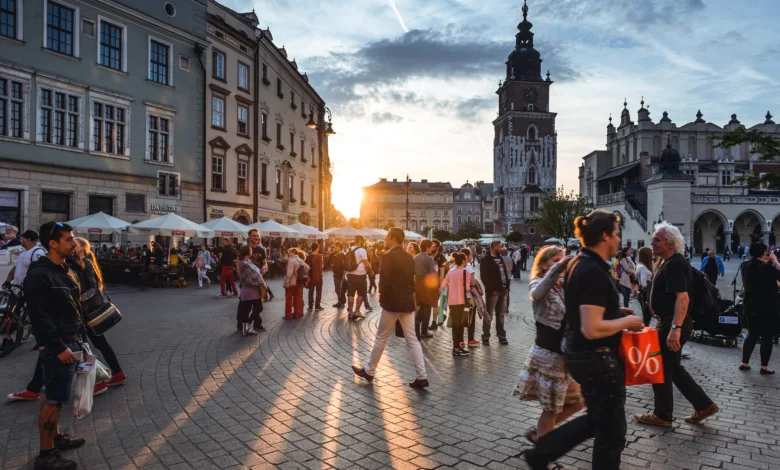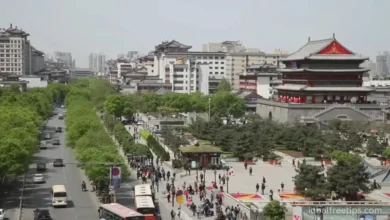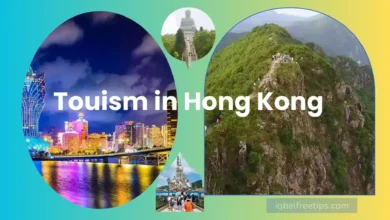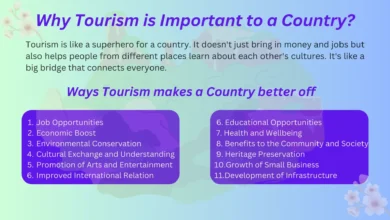
3 Main Objectives of Tourism
Tourism is a dynamic and multifaceted industry that plays a pivotal role in shaping the global landscape. People set out on journeys for a multitude of reasons, and destinations are chosen based on various objectives. While the objectives of tourism are diverse, they can generally be categorized into three main areas. Let’s delve deeper into each of these to gain a clearer understanding of why people choose specific destinations for their vacations and what they hope to achieve during their journeys
One of the primary objectives of tourism is to promote economic development by generating income and employment opportunities for locals. When tourists visit a particular destination, they spend money on various goods and services, which in turn contributes to the local economy. Tourism can also create job opportunities in various sectors such as hospitality, transportation, and retail.
Another important objective of tourism is to preserve cultural heritage. Many destinations around the world have unique cultural and historical significance, and tourism can help preserve them by generating interest and awareness among visitors. In some cases, tourism can also provide funds for the maintenance and restoration of cultural sites and landmarks.
In this article, we will explore these three main objectives and basic components of tourism in greater detail and highlight their significance in shaping the world of travel and exploration.
Economic Stimulus:
One of the objectives of tourism is to provide an economic stimulus to the local economy. This is achieved by tourists spending money on accommodation, food and drink, activities, and souvenirs. This spending creates jobs and helps businesses to grow, which in turn benefits the local community.
The goal is for tourism to contribute positively to the growth of both destinations and providers. Another objective of tourism is developing. By promoting a country culture, history, and landscape, it can increase its visibility on the world stage and generate revenue. Furthermore, sustainable tourism encourages conservation efforts such as those made by Costa Rica with their Eco-tourism.
Marketing Tool
Tourism is a marketing tool that can be used to promote destinations, attractions, and businesses. It can also be used to generate income and create jobs. Tourism can also help preserve culture and heritage.
Three Main Objectives of Tourism
When all these three objectives are met together tourism development is sustainable:
- To enhance individual well-being and social cohesion.
- To contribute to economic development.
- To advance broader societal goals.
To Enhance Individual Well-Being and Social Cohesion.
To enhance individual well-being and social cohesion, one of the fundamental objectives of tourism is to create positive impacts on the lives of individuals within society. This objective explore into the following aspects.
- Personal Growth
- Culture Enrichment
- Health and wellbeing
- Fostering empathy
- Strengthing social bonds
To Contribute to Economic Development
To contribute to economic development, the second primary objective of tourism is to provide substantial support for the economic growth of a region or country. This objective encompasses a range of key factors that drive economic development.
- Revenue generation
- Job creation
- Diverse business opportunities
- Economic diversification
- Foreign exchange earning
To Advance Broader Societal Goals
Apart from safeguarding culture and legacy, tourism’s third objective, which is to promote wider societal objectives, includes a range of aspects that enhance the general welfare of localities and areas. Here are a few more details to further clarify this goal.
- Understanding and Culture exchange
- Environmental sustainability
- Culture Revitalization
- Community Empowerment
- Skill development and education
- Preservation of natural resource
Basic Components of Tourism
The basic components of tourism can be summarized through various elements that collectively contribute to the overall travel experience. Here are basic components.
- Accommodation
- Access
- Amenities
- Attractions
Accommodation
Refers to the types of lodging that are offered to tourists, including rental homes, hotels, and resorts.
Importance
A visitor’s experience can be greatly impacted by the quality and range of lodging options. Managers of the tourism industry must make sure that there are a variety of solutions to suit varying budgets and tastes.
Access
It includes all modes of transportation and connections, such as public transit, roads, trains, and airports, both to and within the destination.
Importance
Getting there quickly and easily is essential to drawing in tourists. A destination’s accessibility is improved by well-maintained transportation infrastructure, increasing its allure to potential tourists.
Amenities
This comprises establishments and amenities that contribute to visitors’ comfort and convenience, like eateries, retail stores, medical facilities, and leisure activities.
Importance
When visitors have access to the essential services throughout their stay, the location becomes more fun and their overall happiness rises as a result of well-developed amenities.
Attraction
Describes the attractions or events that entice travelers to a location, such as scenic spots, historical places, events, and outdoor activities.
Importance
A destination’s allure is frequently established by its distinct features. To keep the destination appealing, tourism administrators must highlight and protect these attractions.
Conclusion
Over the world, tourism has grown to be an important business for many nations. The three main objectives of tourism are to encourage sustainable development, protect cultural assets, and advance economic growth. Every goal has importance of its own.
Right , but in order to build a prosperous and sustainable tourism sector, it is imperative that they are balanced. Moreover Access, accommodation, amenities, and attractions make up the fundamental elements required for a flawless vacation experience. By coordinating our professional and personal endeavors with these goals, we support community well-being, individual development, and the long-term viability of the international tourism sector.
You may like:
Why Having a Set of Tourism Policy Objectives is Important




